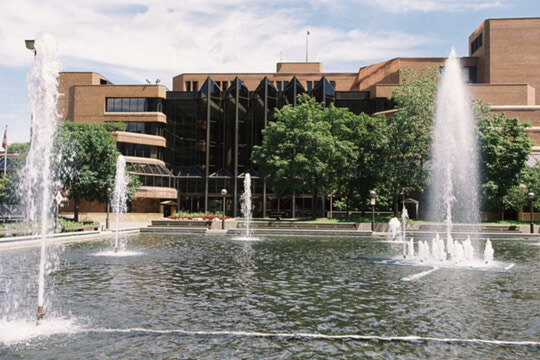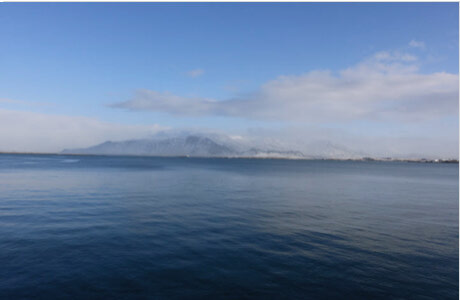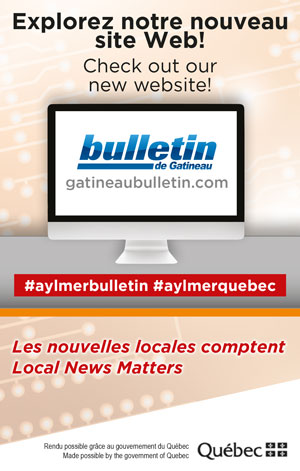Gatineau Monde Lecture series:
Chalk River nuclear energy and waste facility
Reuel S. Amdur
On February 22, Société Gatineau Monde hosted a conference on the subjects of climate change and reliance on nuclear energy. Speakers were Réal Lalande, Chairman of the Board of Action Climat Outaouais, and Gilles Provost, of the Rassemblement contre la pollution radioactive.
Their presentation had two major foci. First, they dealt with the impact of climate change, especially on the third world but also here, as illustrated by the 2019 inundations in Gatineau. In the global South, climate change has brought on drought with resulting crop failures and loss of livestock. As a consequence, there has been a desperate flight of people heading north, to Europe and the United States.
Well, is nuclear the answer? Can it be the step away from fossil fuels that will apply the brakes on carbon and hence on global warming? Chalk River is a test case.
The Rassemblement has rung the alarm against nuclear. "Their effects could be worse than those of climate change." Furthermore, "Nuclear is an arch-pollutant, for hundreds and thousands of years!" It is the atomic waste that is the problem.
Presenters also cautioned against the move to small nuclear reactors. They are, it is argued, more expensive than green alternatives, and they lack oversight. As well, they also produce the same problematic radioactive waste. While none have yet been built, the federal government is investing money in the private development of these reactors.
Turning to the case of Chalk River, the proposed dump is situated less than a kilometer from the Ottawa River, on whose water millions of Canadians rely for drinking. According to Action Climat Outaouais, this proximity makes contamination of the river "inevitable." The feds plan to turn this project over to the private sector, meaning less control.
Action Climat Outaouais says that the plan is to dump "millions of tonnes of radioactive waste generated over 75 years.. . . Neither the federal government nor the nuclear industry has a coherent plan to manage all the polluting and very dangerous radioactive waste."
While no one knows how to handle nuclear waste, the government continues to create more and more of it. If the feds press the issue on Chalk River, we may all end up drinking it.





